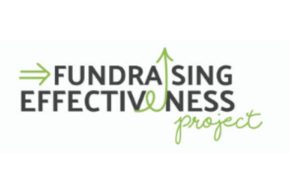People have more trust in nonprofits than boarder philanthropy to help strengthen society and the more familiar and connected they are to organizations, the more trust they have in them, according to a new survey. There is more mistrust, though, at lower economic level.
Independent Sector (IS) released new findings on trust in civil society from a research study conducted in partnership with Edelman Intelligence. Two national surveys were conducted by Edelman Intelligence, each of 3,000 American adults ages 18 and older, to assess the general population’s trust in the sector, both nonprofits and philanthropy, and uncover the factors that drive trust.
The 32-page report, “Trust In Civil Society: Understanding the factors driving trust in nonprofits and philanthropy,” includes results from a series of surveys designed to explore “nuances of trust” in American nonprofit and philanthropic organizations. The findings also will be factored into IS’ annual “Sector Health Report,” debuting in September.
“We were really encouraged, at a time when, prior to the pandemic, economic crisis and racial reckoning, nonprofits were a place where the public would look to as trusted leaders in helping navigate changing times,” IS President and CEO Daniel Cardinali said. “I think that is good news,” he said.
“We’re at a time now that, navigating just this perfect storm of forces, nonprofits are very, very powerfully positioned as institutions to help communities navigate through crisis,” Cardinali said.
Among respondents, 81 percent are confident in nonprofits to help strengthen society compared with 68 percent who said they are confident in philanthropy to help strengthen society. The more closely aligned with mission and impact, the more likely people trust those nonprofits, according to the report.
There was higher trust in nonprofits (59 percent) than in philanthropy (36 percent), based on agreement for overall trust: “Do you trust X to do what is right?”
There is quite a significant difference between how Americans look at nonprofits, as relatively strong, trusted institutions, and less trust for philanthropy, such as, institutional philanthropy, high-net-worth individuals and corporate philanthropy. “We don’t see this as surprising; that familiarity and sense of connectedness to a nonprofit is a very high predictor of trust,” Cardinali said.
The survey results were not without some alarms. Rural communities and individuals from really poor communities have lower degrees of trust in nonprofits. “The incredible work that nonprofits do with those communities, and not for, is something that we need to pay attention to, to incorporate their voice and build trust in the process,” he said.
The more affluent and better educated that people were, the more trust they had in nonprofits, Cardinali said. “The further down the economic and education ladder, the less, particularly around the $35,000 level, that was a powerful cutoff,” he said.
Trust in nonprofits compared with a decade ago was highest among people of color (47 percent, Hispanic; 41 percent, Black, and 38 percent, Asian-American) and younger generations (49 percent, Generation Z; 42 percent, Millennials and 35 percent, Generation X, compared with 28 percent of Baby Boomers, and 15 percent among the Greatest Generation).
Almost half of respondents agreed the nonprofit and philanthropic sectors are headed in the right direction compared with just 18 percent who said it on the wrong track; 35 percent answered “Don’t know.”
Among respondents, 36 percent chose “everyday people” as those best positioned to address societal challenges, followed by government, 20 percent; nonprofit, 12 percent; private foundations and high-net-worth individual philanthropy, 12 percent; and corporations, 5 percent.
“Nonprofits look to be a voice for and with those communities to advocate for change,” Cardinali said. “When leading with our work, we’re best building trust in the minds of our donors, and our partners when we’re trying to create social change,” he said.
“Attending to trust is good for the broader sector and for your organization’s sustainability,” Cardinali said.
Edelman Intelligence conducted two national surveys, each of 3,000 American adults ages 18 and older, to assess the general population’s trust in the sector, both nonprofits and philanthropy, and uncover the factors that drive trust.











